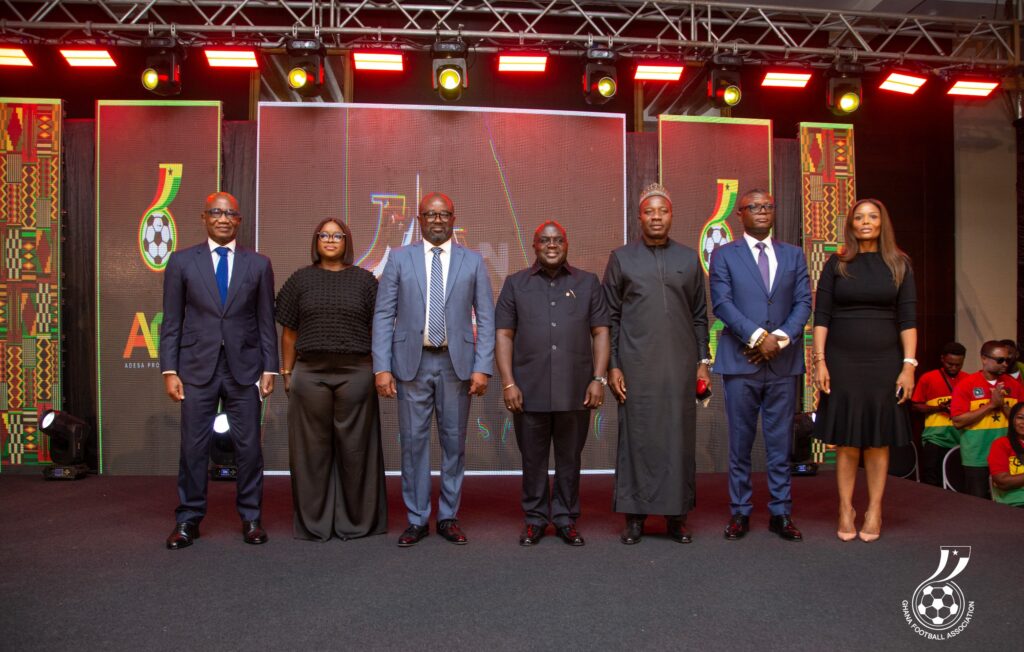…as GFA Announces Groundbreaking Partnership with APL.
In a historic move, the Ghana Football Association (GFA) has inked a game-changing deal with Adesa Productions Limited (APL) to breathe new life into the Premier League.
This partnership, announced in a grand ceremony at Accra’s prestigious Movenpick Hotel, signals a shift towards professionalism that has both clubs and fans eagerly anticipating what lies ahead.
Under the terms of the agreement, each club in the league will receive a substantial GHS 1 million for essential stadium upgrades, along with merit-based prizes that will reward performance and league standings.
APL has further committed to delivering top-notch broadcast coverage and innovative marketing strategies that aim to elevate the Ghana Premier League to international standards.
Speaking on the transformative deal, GFA President Kurt Simeon-Okraku declared, “We are positioning our league as a destination rather than a mere stepping stone.”
This vision has garnered support from key figures such as Sports Minister Kofi Adams and Parliament’s Majority Leader, Mahama Ayariga.
While these advancements paint a promising picture for Ghana’s football landscape, concerns linger around the sustainability of the partnership due to the undisclosed duration of the contract.
Comparisons with other African leagues reveal significant disparities, with Nigeria securing 5-year broadcast agreements and South Africa establishing longer-term 10-year partnerships. In contrast, the absence of a timeline in the GFA-APL deal has raised doubts within the industry.
A CEO of a Premier League club, speaking on condition of anonymity, emphasized the need for clarity, stating, “While the funding is crucial for our development plans, the uncertainty surrounding the partnership’s duration leaves us in the dark.
As we invest in academies and player recruitment, we require a level of certainty for the future.”
Acknowledging the immediate benefits and innovative strides brought forth by the partnership, stakeholders urge transparency on the contract’s longevity as a crucial element for sustainable growth.
Without a clear timeline, Ghana’s football renaissance risks being a gamble rather than a lasting legacy.
By Sowah Abraham Akofio


